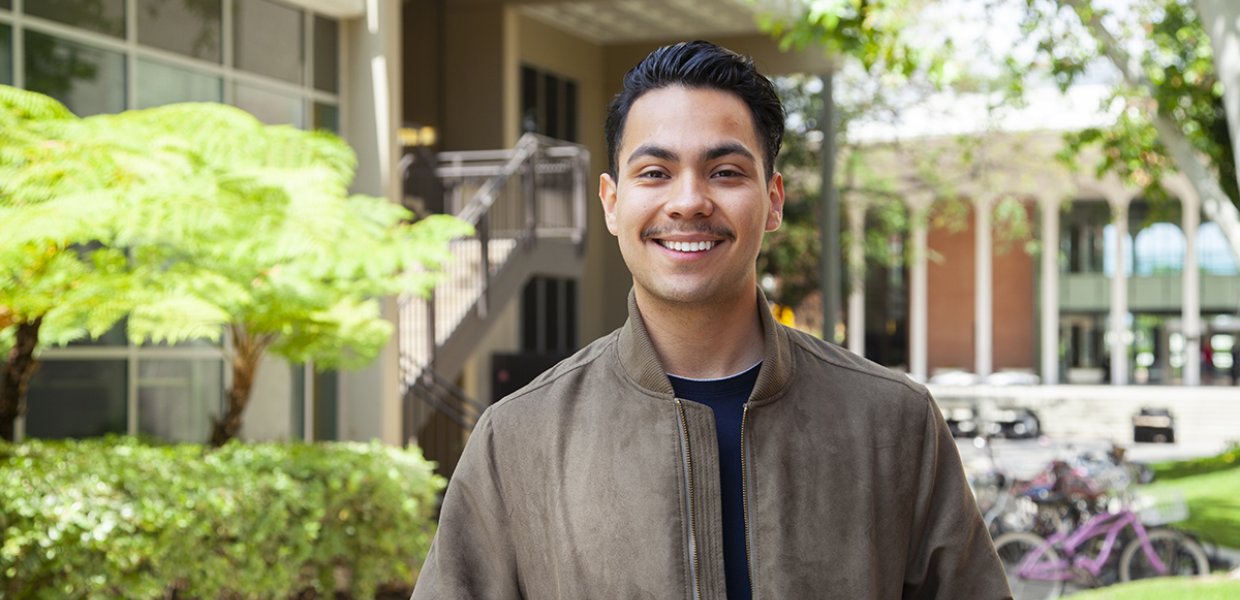In a tiny, rural village about 30 miles outside of Bangkok earlier this year, Francisco Jauregui ’19 and a group of five USC Annenberg students arrived in a taxi to attend a Muay Thai martial arts class.
Even though they didn’t understand the language, they were able to follow the motions of the instructor, learning a few boxing-like techniques. “It was a beautiful, deeply rooted cultural experience in an authentic setting,” said Jauregui, who is set to graduate on May 10 with a bachelor’s degree in communication from USC Annenberg and English literature from USC Dornsife College of Letters, Arts and Sciences.
Jauregui was one of 14 people selected this past March to attend the Annenberg Alternative Spring Break in Thailand. Over the nine-day trip, they visited global newsrooms, NGOs and local nonprofits. They learned how international companies implement strategies based on social responsibility and communication advocacy.
“This is how I can make an impact,” he said.
Traveling so far from home might not have been possible had Jauregui not already taken a leap his second semester of his junior year to study abroad in London.
Jauregui, who was born and raised in Indio, California, had taken family trips to Mexico, driving to border cities as a child, but would be the first in his family to leave the North American continent. His parents were reluctant to give permission — it was unfamiliar, and they didn’t understand his reason for leaving, he said. After some convincing, they agreed to let him go and made plans to travel to Europe to meet him during his spring break. As Jauregui looks back on that experience, he said it reminded him that his education is not only for himself, but for his family.
Jauregui immersed himself in the completely new environment. He took classes on the rhetoric of London and was taught by a BBC reporter how to build communication campaigns for social change. “It was amazing to take some of the theories and practices I learned at Annenberg and apply them in a different country — and examine how these messages are translated from one continent to another,” he said.
He also took every opportunity he had to travel outside of London. Every three weeks, he made sure to take a trip, going to Italy, Greece, Germany and the Netherlands. An avid food lover, he would collect different spices as he traveled from one destination to another. From cardamom to sage to saffron, each new scent, color and flavor marked a stop on his journey.
A highlight was a solo trip to Croatia that he took in April of 2018. It was his first night in Split, and after a quick bite to eat, he wandered around the streets. He stumbled upon a dock where people were playing guitars and laughing.
Jauregui pushed his nervousness aside and joined them. That evening, he met people from all over the world — Brazil, France, Bosnia, Spain and South America. Hearing their stories, he realized that, despite living on separate continents, they had similar interests, career goals, and came from similar backgrounds and communities. “I saw there is a greater theme across the human race that I am still trying to grapple with,” he said, adding that he has learned to “be comfortable with being uncomfortable.”
These explorations showed him a connection between education and travel. “I wanted to see everything and practice my communication skills on a global level. And I was able to do that every day,” he said. His classes at USC Annenberg also taught him that “messaging could be integrated in dancing, imagery and even sounds.”
Jauregui talks about one of his favorite classes, “Sound Clash” taught by Josh Kun, director of the school of communication. In this course, they looked at how contemporary music videos and popular culture influence the way people perceive certain messages and construct their own identity.
“Communication is everywhere and it is everything,” he said. “That was something Kun taught me, and it has stuck with me throughout my education at USC.”
After graduation, Jauregui wants to continue to travel and work for change on both the person-to-person and institutional levels. He is considering careers in higher education, policy-making for university administration or pursuing a master’s degree in public diplomacy.
“Everything is up in the air,” he said. “The world is my oyster. We’ll see what happens.”
